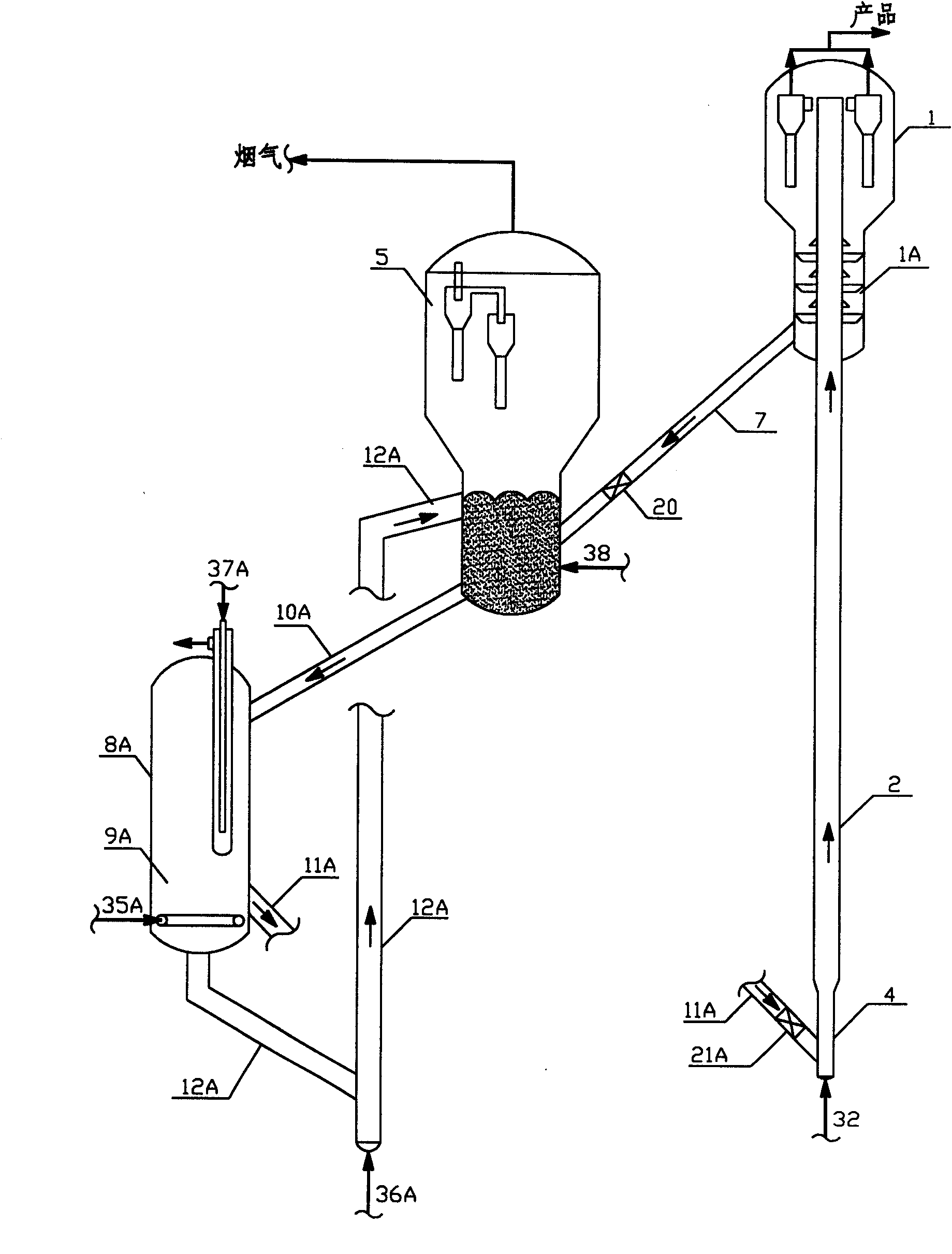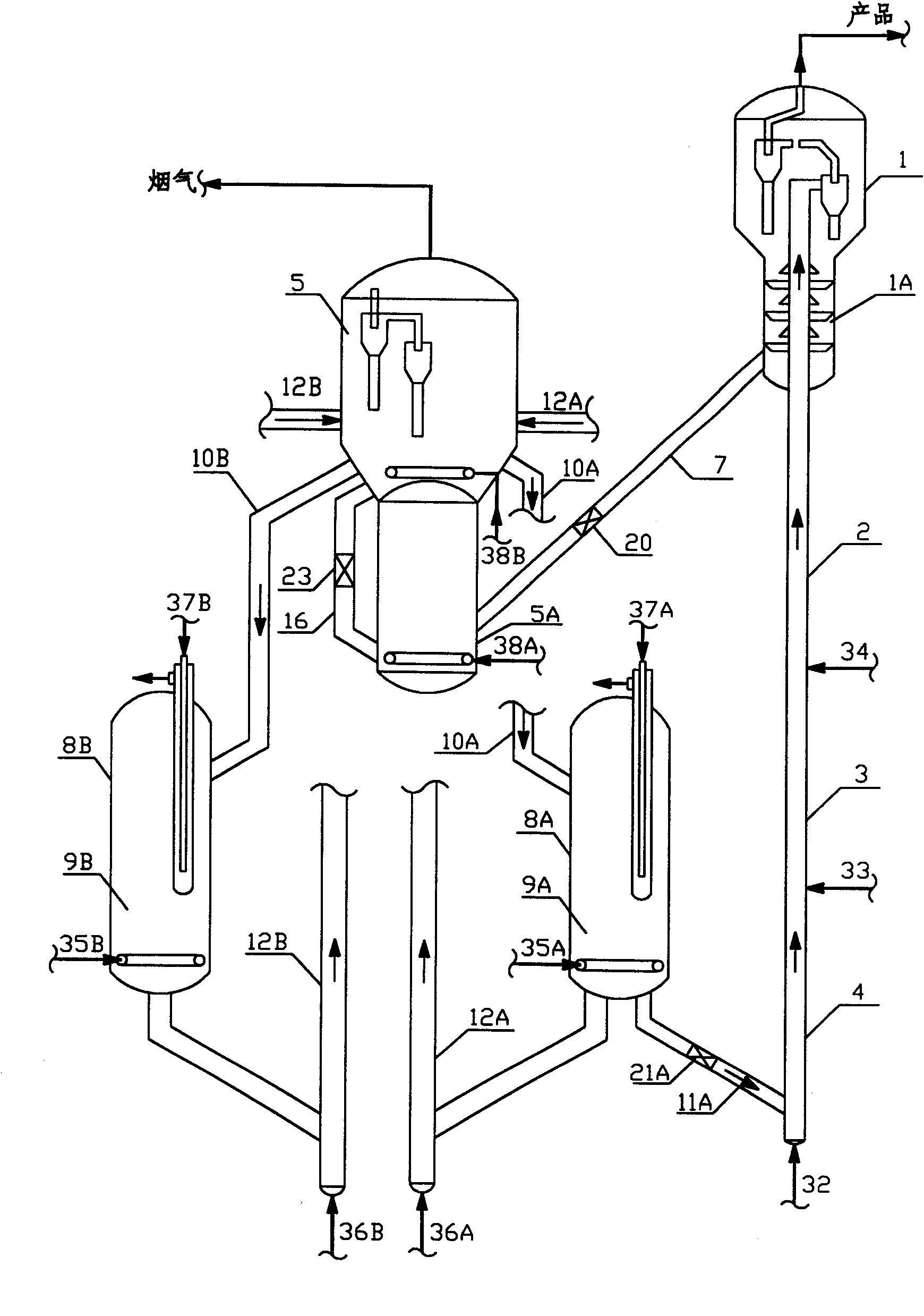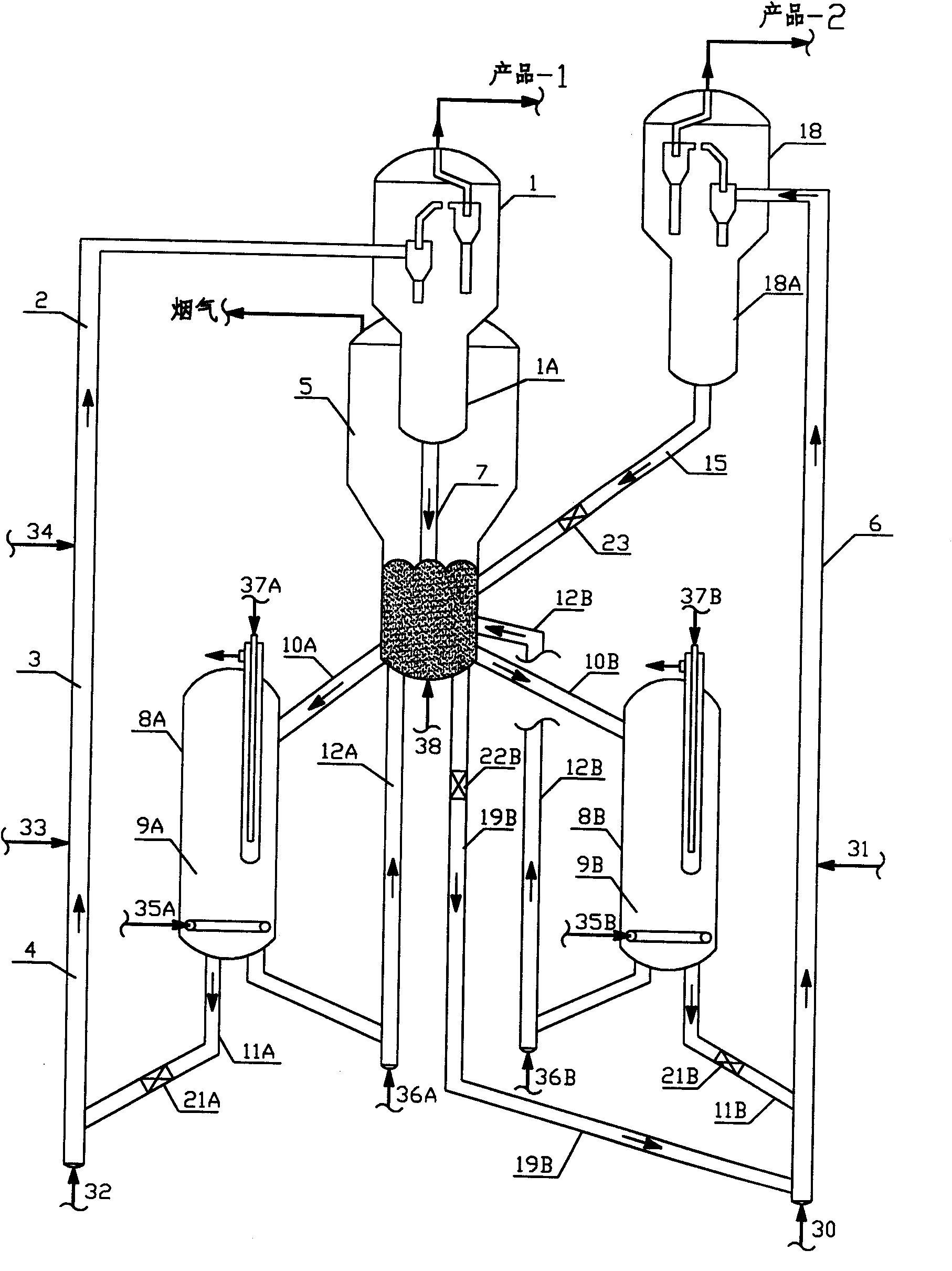Method and device for circulating cold regenerated catalyst
A technology for catalyst recycling and catalyst regeneration, applied in catalytic cracking, cracking, biological raw materials, etc., can solve problems such as unfavorable catalytic cracking reaction, inability to optimize the operating conditions of the reaction system, and decrease in catalyst activity, so as to improve the yield of light oil, reduce Oil impurities and the effect of improving gasoline octane number
- Summary
- Abstract
- Description
- Claims
- Application Information
AI Technical Summary
Problems solved by technology
Method used
Image
Examples
example 1
[0147] For verifying the effect of the present invention, adopt figure 2 The process flow shown, the raw materials shown in Table 1, the process conditions shown in Table 2 and the GOR catalyst produced by the Changling Refinery Catalyst Factory, the test results are shown in Table 3.
[0148] Table 1
[0149] logistics
[0150] In Table 2, scheme A of the prior art adopts conventional catalytic cracking technology: the temperature of the regenerator catalyst bed is 680°C, and the reaction temperature is 525°C. The raw material temperature was 200°C, and the agent / oil ratio was 6.7. Therefore, the temperature difference between the regenerant and the raw material is 480°C. The scheme A of prior art has following deficiency:
[0151] (1) The feedstock temperature of 200°C is quite low for the cracking of residue-containing feedstock.
[0152] (2) Although the temperature of the regenerator meets the regeneration requirements, the temperature is too high when in ...
PUM
 Login to View More
Login to View More Abstract
Description
Claims
Application Information
 Login to View More
Login to View More - R&D
- Intellectual Property
- Life Sciences
- Materials
- Tech Scout
- Unparalleled Data Quality
- Higher Quality Content
- 60% Fewer Hallucinations
Browse by: Latest US Patents, China's latest patents, Technical Efficacy Thesaurus, Application Domain, Technology Topic, Popular Technical Reports.
© 2025 PatSnap. All rights reserved.Legal|Privacy policy|Modern Slavery Act Transparency Statement|Sitemap|About US| Contact US: help@patsnap.com



